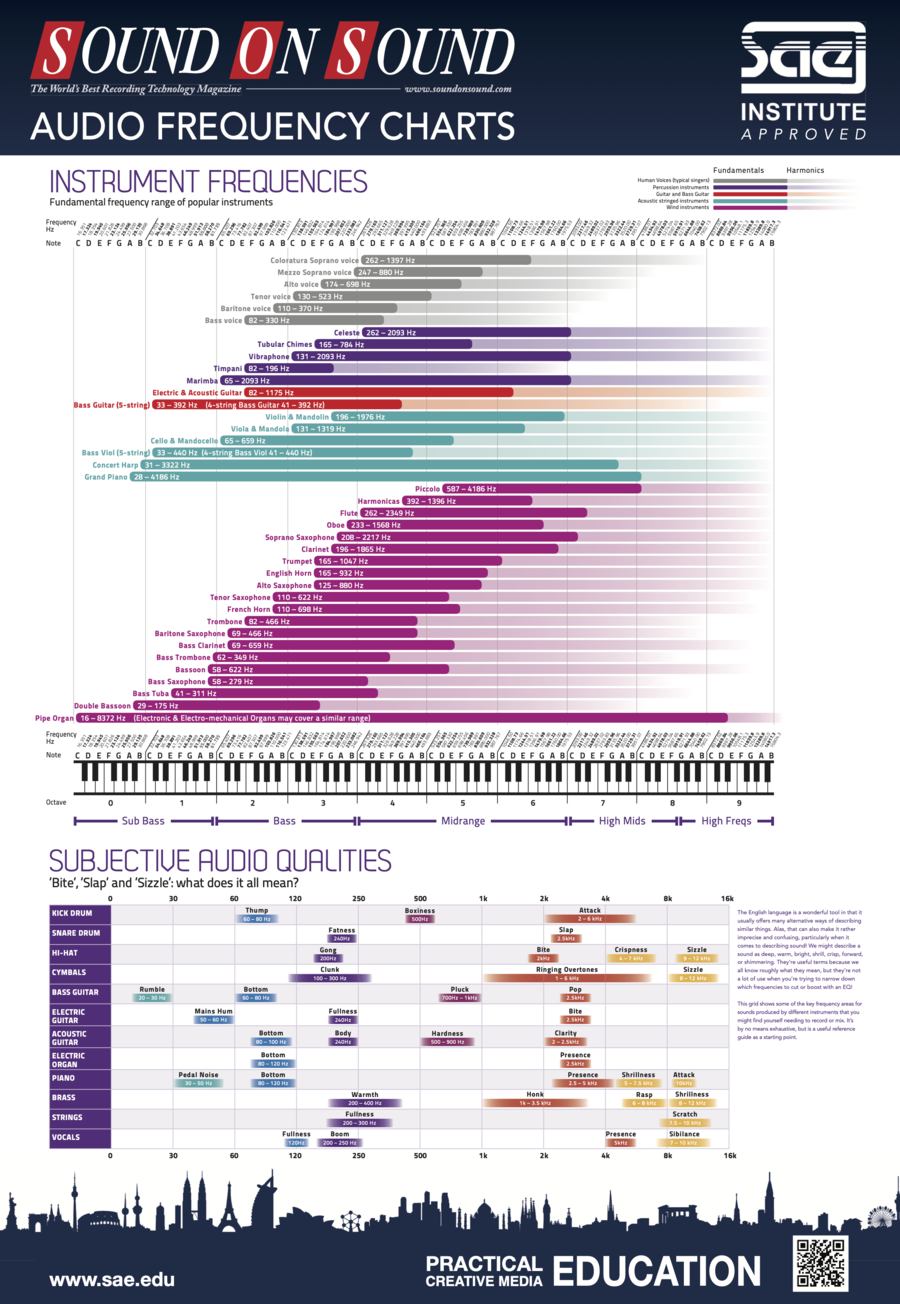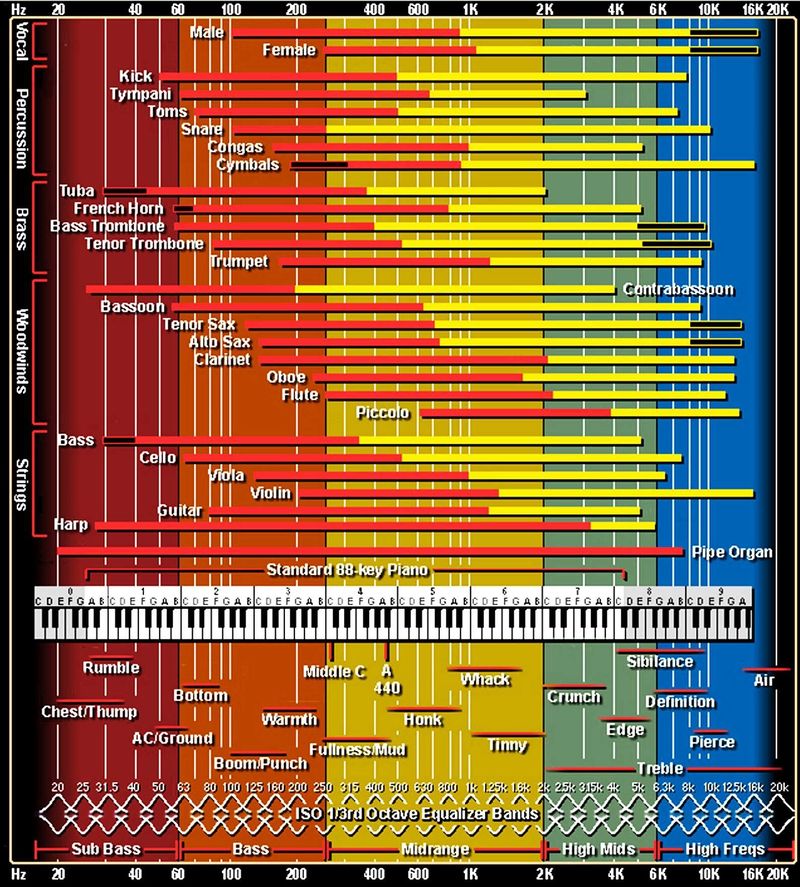This is the wiki for products made by Fractal Audio Systems, maintained by members of the community.
Difference between revisions of "Describing sound"
Jump to navigation
Jump to search
| Line 4: | Line 4: | ||
| − | [[image:Frequency_chart_SOSUK-Nov2012-hires.png|900px|Used with permission from [https://www.soundonsound.com Sound On Sound.]]] | + | [[image:Frequency_chart_SOSUK-Nov2012-hires.png|900px|Used with permission from [https://www.soundonsound.com Sound On Sound.]]] |
| + | |||
| + | |||
| + | Another chart: | ||
[[File:EQChart.jpg|800px]] | [[File:EQChart.jpg|800px]] | ||
| Line 10: | Line 13: | ||
Additionally, see <q>[[EQ#More information|More information]]</q> in the EQ page for… um… more… um… much more information. | Additionally, see <q>[[EQ#More information|More information]]</q> in the EQ page for… um… more… um… much more information. | ||
| − | + | Watch these videos: | |
[[video:Wampler-DescribeGuitartone]] | [[video:Wampler-DescribeGuitartone]] | ||
Revision as of 11:06, 20 August 2025
When communicating, a common nomenclature for describing sound can be beneficial. It ensures we're all talking about the same thing. When you say honk
and I say honk
: if we're not both talking about the frequencies that occur between 400 and 1000 Hz on the audio spectrum, we're going to have a hard time communicating.
Below are charts of standard audio terms, used with permission from Sound On Sound. The graphic is also available in .PDF format: PDF.
Another chart:
Additionally, see More information
in the EQ page for… um… more… um… much more information.
Watch these videos:

